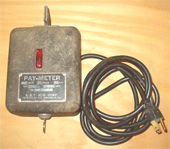Scott- Ya know you're something special when you can pick a Medeco.
View attachment 914070
I once heard that Medeco offered a cool million to someone who could pick a Medeco.
The industry standard for security, or some such nonsense.
Commonly used at banks....

I got my hands on a Medeco a couple of months ago and cleared
the pins from the chambers and loaded one pin.
I played with it until I could pick one pin.
Then I added another pin.
Then another....
I can pick a 4 pin Medeco, but 6 pins is pretty much impossible.
---------------
My locksmith Friend and I just finished up a "Housing Authority" job that used IC cores.

Used the "Best" "B" keyway.
I Had to pin them to a control and a tenant key, of course, a "Master" and a "Grand Master key."
Two each per unit.
I'd guess about 250-300 units.
I'd pin them up and when it was scheduled, we'd "make a run" on a property changing them out.
Oh, and each pair per unit of cores had to have 3 keys made. Two for the tenant and one for the maintenance staff.
And the keys had to be stamped and the IC cores had to be engraved with the "control" numbers.
We worked on that all summer!
I hear talk of a Christmas Dinner of Sushi this week at an upscale joint called KIKU!
Kiku Japanese Restaurant
Best,
Scott

















